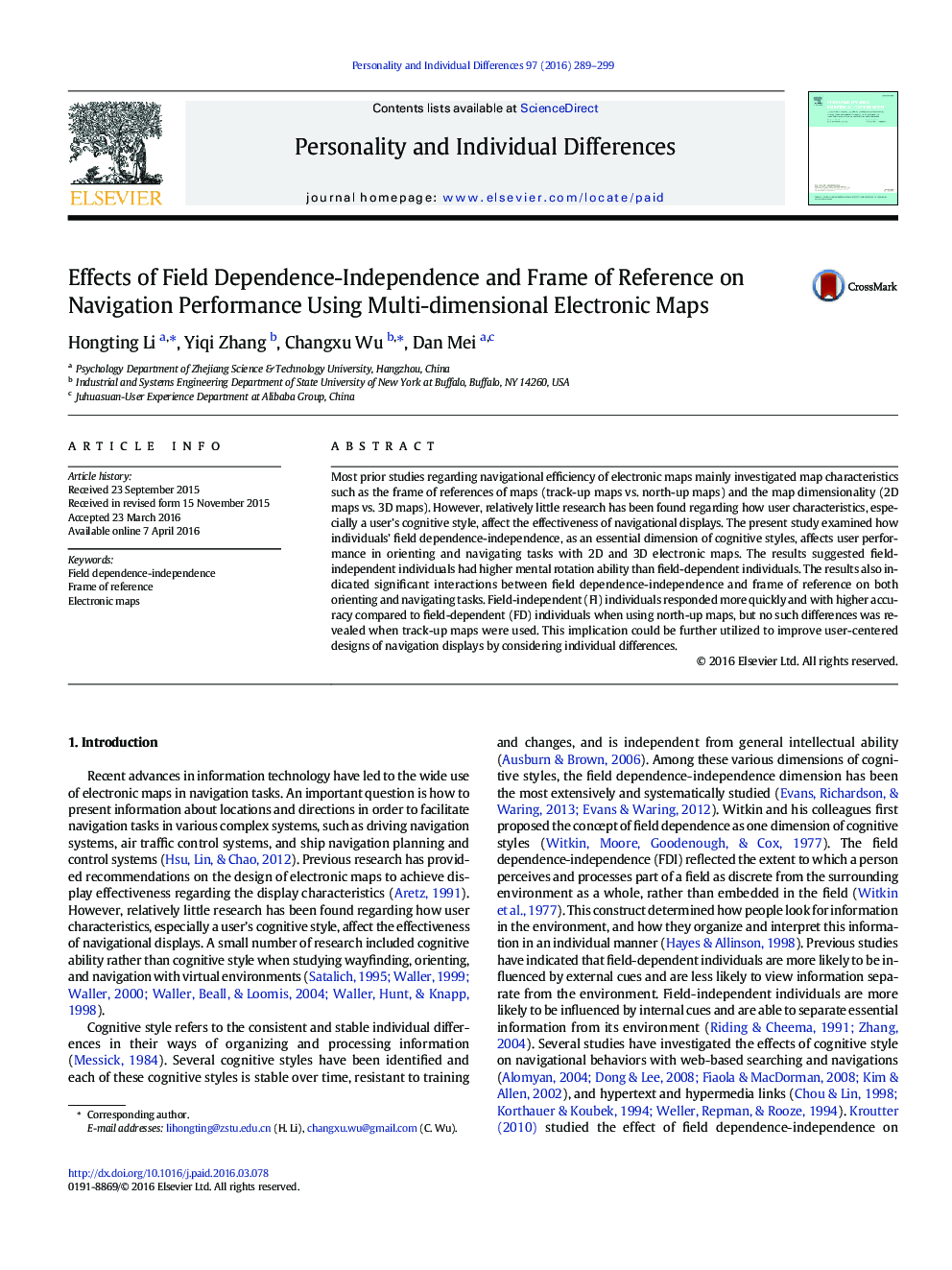| Article ID | Journal | Published Year | Pages | File Type |
|---|---|---|---|---|
| 7250108 | Personality and Individual Differences | 2016 | 11 Pages |
Abstract
Most prior studies regarding navigational efficiency of electronic maps mainly investigated map characteristics such as the frame of references of maps (track-up maps vs. north-up maps) and the map dimensionality (2D maps vs. 3D maps). However, relatively little research has been found regarding how user characteristics, especially a user's cognitive style, affect the effectiveness of navigational displays. The present study examined how individuals' field dependence-independence, as an essential dimension of cognitive styles, affects user performance in orienting and navigating tasks with 2D and 3D electronic maps. The results suggested field-independent individuals had higher mental rotation ability than field-dependent individuals. The results also indicated significant interactions between field dependence-independence and frame of reference on both orienting and navigating tasks. Field-independent (FI) individuals responded more quickly and with higher accuracy compared to field-dependent (FD) individuals when using north-up maps, but no such differences was revealed when track-up maps were used. This implication could be further utilized to improve user-centered designs of navigation displays by considering individual differences.
Keywords
Related Topics
Life Sciences
Neuroscience
Behavioral Neuroscience
Authors
Hongting Li, Yiqi Zhang, Changxu Wu, Dan Mei,
